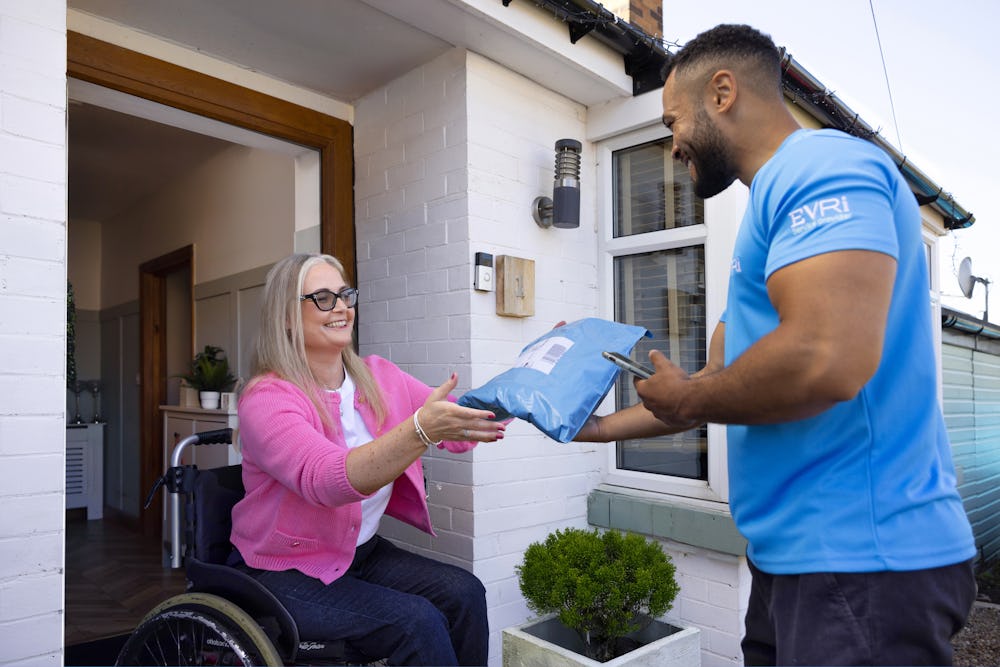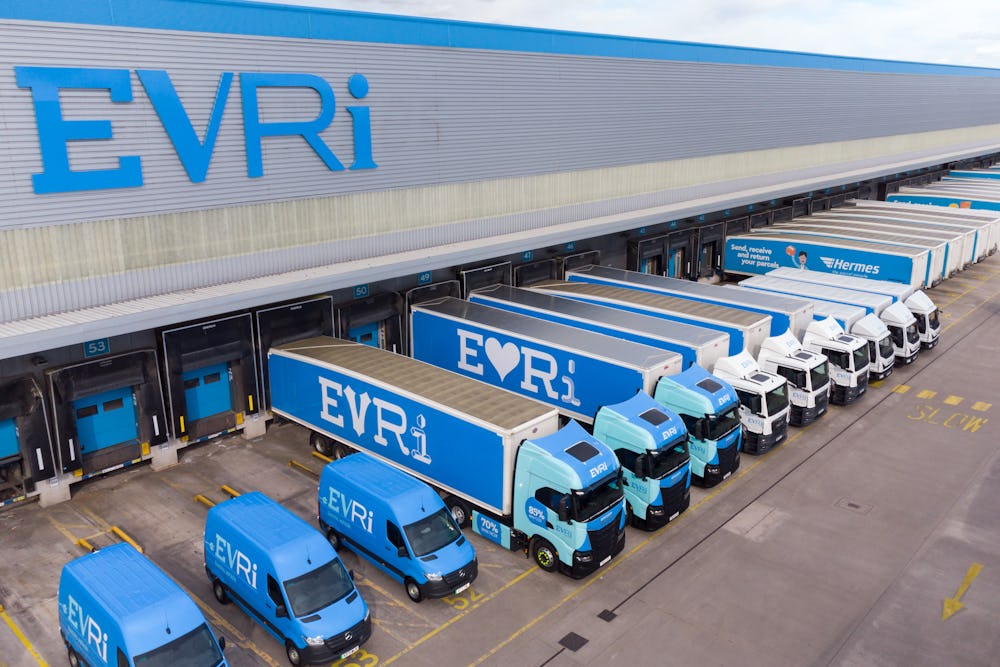What is logistics management?
Learn all about managing logistics around your business with our guide!


Effective business logistics
It’s safe to say that, no matter the size of your business, having good delivery logistics is essential if you want to seamlessly meet the needs of your customers. After all, if you’re struggling to handle the internal supply chain of your business, then how can you expect to effectively deliver your products where they need to go?
Of course, simply saying that you need a good logistics setup is one thing, but how can you actually implement such a process to ensure your customer service is top-notch? And how do you achieve it without increasing your overheads any more than you need to?
Keep reading to learn exactly what logistics management is, how it works, why it’s important, and how you can implement it properly within your business plan, all so you can stay competitive in your respective e-commerce market!

What is logistics management for businesses?
At the end of the day, logistics management boils down to one core set of functions – the process of storing, organising, planning, managing, and delivering your goods to your customers.
Essentially, it governs the ‘behind the scenes’ part of the customer ordering process, no matter if that’s domestic shipping or otherwise.
However, there’s more to effective logistics management than simply ensuring you have the products in question in stock and delivered on time. In fact, if you’re managing your logistics properly, it will encompass all areas of your business, from storage management all the way up to your marketing.
What is actually involved in logistics management?
When looking at logistics at a more detailed level, you can breakdown the process into the following key aspects:

Inventory management:
Making sure that you have enough of the product in question in stock to meet customer demands. Otherwise, you won’t know how much of each item you have for sale or if it’s out of stock.

Storage management:
Ensuring that the place your goods are stored in is organised in a way that makes finding and collecting each item as simple as possible. This will make calculating the volume of each good easier.

Order fulfilment:
Smoothly handling customer orders and payments so that you can deliver goods in a timely manner. Such as having a simple way of noting what an order requires so that staff can find and pack it quickly before storing it in the right area for delivery.

Packaging:
Learning how to wrap a parcel in a way that’s cost-effective yet safe to prevent damage during delivery. Smart packing will also mean you can transport a higher number of items with each delivery.

Delivery management:
Ensuring that your chosen form of delivery is efficient and can deliver directly to your core customer base. For example, having each Courier only deliver parcels within a set radius so they can make deliveries faster and use less fuel.

Supply and demand planning:
Properly planning around to mitigate potential logistical risks, such as delays in your supply chain, and creating back up plans in the event of serious supply problems, such as high demand products being out of stock. Simply put, if you don’t have a plan B, you could be caught off-guard if problems in your supply chain occur, which in turn can damage your reputation with customers.

Third-party services:
Making sure that any third parties involved in the operation of your supply chain are capable of meeting the demands required of them. For example, here at Evri, our Couriers operate on a global level, meaning we can deliver your goods to over 200+ countries and territories.

Customer service:
Ensuring that your logistical operations are capable of meeting the demands and promises you’ve made to your customers, such as Next Day delivery. Otherwise, you may find that customers turn to your competitors instead.

Returns processing:
Establishing a simple and easy-to-use process for handling any unforeseen returns. Here at Evri, for example, our Couriers can easily return parcels to their original retailers.

What does the logistics process look like?
So, we know that managing your logistics involves monitoring and delivering product stock, but what does this look like from a top-down level?
Well, for one thing, the process of monitoring your logistics begins long before a customer places an order. You first need to have a set stock of the products you intend to sell before you do anything else.
However, this doesn’t mean just buying or hoarding an endless amount of goods just in case you need to sell one. Instead, by gauging customer demand for certain products, you can, in theory, stock just enough to meet demand., which is more cost-effective too.
From here, your basic logistics process might look a little something like this:
- A customer decides to place an order for one of your products.
- Once an order is placed and payment confirmed, the staff based where the product is stored will locate the item in question, log the number of items removed, and then package these securely.
- After packing, the item is given to the delivery service, and once handed to its Courier, will be noted as now being ‘out for delivery’.
- The Courier will then set out with as full a van as possible and begin making deliveries in their given area, starting with those items that require immediate delivery, such as Next Day orders. Once the item is handed to the customer, it can then be ticked off as ‘delivered’.
- Finally, the system you use to track your inventory will be checked to ensure it has been properly updated to match your change in stock and you can then resupply any items if required.
This is, of course, a highly simplified version of the logistical process, and you’ll likely find yours to be a little more complicated than this. However, through rigorous inventory tracking and efficient systems, you can make sure that your products arrive at the right location, on time, and to the right customers.

Why is managing logistics correctly important?
As we’ve touched on a few times, the main reason you want an efficient logistics system is so you can meet customer demand in the most cost-effective manner. This will let you deliver excellent customer service and retain newer buyers through consistent customer satisfaction.
But good logistics is also about far more than enhancing your brand’s reputation and customer base. It’s also about saving you as much money as possible on business overheads. And that’s why it’s so important to consider all areas of your business when logistics is involved.
Take marketing as an example. On the surface, you wouldn’t think that marketing plays much of a role in how you handle inventory management and delivery. However, if your marketing states you do Next Day delivery better than anyone else, then you need your logistical setup to be able to deliver on this promise!
The same is true for all other areas of your business. If your IT systems are outdated, order processing could be done incorrectly. A poor warehouse layout could make finding and tracking items difficult. And if your suppliers are inefficient, then you may never have the stock you need to meet order requirements.
Simply put, if you have a quick and efficient way to track your business inventory, process customer orders, protect items in transit, and get deliveries to their destination in a timely manner, you’re going to be spending less money on additional storage, transportation costs, and replacement items.
It’s a win-win situation!
Best practices in logistics management
With the details on logistics handling out of the way, you’re probably now wondering what some of the best practices in logistics management are. Below are our seven top tips to consider following if you want to get the most out of your logistics:

Plan extensively:
A strong plan A and plan B are absolutely essential when it comes to logistics. From outlining how to get your goods to your customers to what to do in the event of an unforeseen disaster, thorough planning is your business’s best friend.

Hire an expert:
If you only operate a small business then you can skip this step, but if your business is reasonably big, then hiring a trained logistician can be invaluable. Their job is to bring all areas of your business into alignment with your logistical vision, giving you visibility on all areas of supply and ensuring a seamless flow from inventory ordering to parcel delivery.

Smart inventory placement:
Keeping your chosen storage area well-organised is a must for logistical planning, as is keeping it as close to your customer base as is reasonably possible. A smartly arranged warehouse will make monitoring and finding ordered items easy, while close dispatch centres will mean your Couriers travel shorter distances between deliveries and can get parcels to their destinations faster.

Automate your systems:
When it comes to logistics, proper system automation is certainly a must. From inventory tracking to dispatch monitoring, and everything in between, good automation will smooth order processing times and allow for optimal delivery routes based on delivery requirements.

Vet third parties:
As a smaller business, it’s likely you’ll need to hire a third-party company to handle some of your logistics for you, such as delivery. For that reason, you need to thoroughly vet any company you plan to use to make sure they can match your logistical requirements. Otherwise, you could potentially be wasting money.

Pick the right software:
There are many software options out there for logistical management, and any one of them could be a benefit to your business. Just be sure the software you choose matches your needs or you may find you’re not getting what you want from it.

Streamline delivery:
In almost all cases, delivery is the most expensive part of the logistics process, which means you want to keep costs as low as possible to save money. That’s why you need to spend time picking the right delivery method for your business, or better yet, make use of a dedicated Courier Service, like Evri, who will handle all the tricky parts around delivery for you while giving you great value.

Master your logistics with Evri
As you can see, nailing your business’s logistics can be a daunting prospect. That’s why you might want to consider letting the experts handle a large part of the process so you can focus on the areas of your business you know best – experts like Evri!
By teaming up with us as your dedicated Courier service, you’ll get access to our dedicated fulfilment centres across the UK, EU, US, and Middle East for all your delivery needs. Not only that, but you can even organise daily collections from your business so that we handle all but your inventory management for you.
You’ll even get a dedicated account manager who will work with you to meet the needs of your business directly. As well as all of the following great benefits:
- A 24/7 delivery service with best-in-class returns
- A global delivery service to over 220+ countries and territories
- Omni-channel fulfilment operations and a dedicated customer service team
- Low and flexible pricing tailored to your parcel volume
- Quick and easy integration to all major online marketplaces and order management systems
- Next Day and Weekend delivery for customers with full parcel tracking
- Customer access to over 10,000+ ParcelShops and Lockers from where they can collect their parcels
Sign up for an Evri business account today and start growing your business, or take a look at our tips for on-demand delivery, to help your shipping become as efficient as possible.